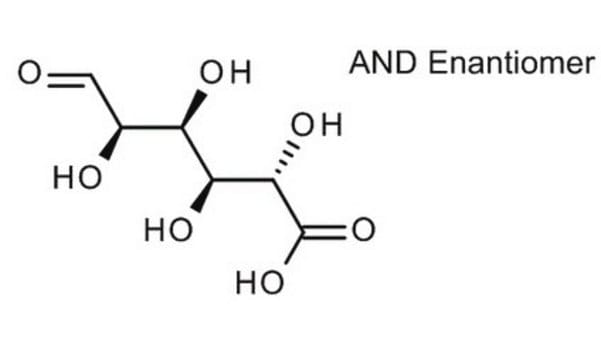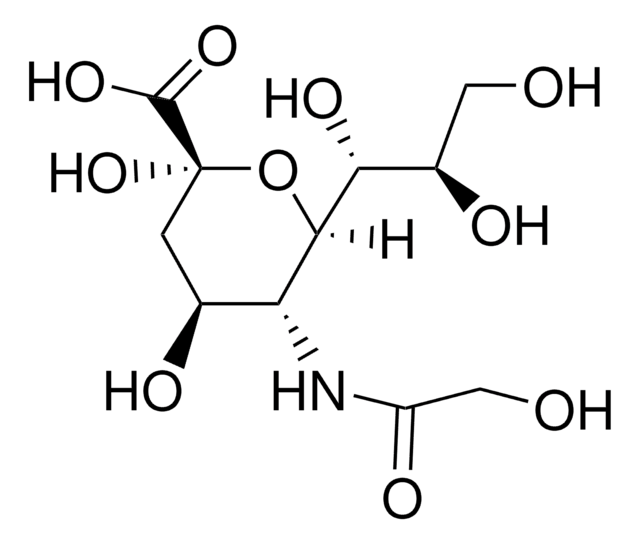SMB00280
D-Mannuronic acid sodium
≥90% (HPLC)
Synonym(s):
D-Mannuronic acid sodium, Mono-mannuronic acid sodium salt, Sodium mannuronate
About This Item
Recommended Products
Assay
≥90% (HPLC)
form
powder
color
white to off-white
solubility
water: 10 mg/mL, clear, colorless to faintly yellow
storage temp.
−20°C
SMILES string
O[C@H]([C@@H](C(O[Na])=O)O[C@@H](O)[C@H]1O)[C@@H]1O
InChI
1S/C6H10O7.Na/c7-1-2(8)4(5(10)11)13-6(12)3(1)9;/h1-4,6-9,12H,(H,10,11);/q;+1/p-1/t1?,2-,3+,4?,6+;/m0./s1
InChI key
MSXHSNHNTORCAW-NMRVOGSPSA-M
Application
- Effects of β-d-mannuronic acid, as a novel non-steroidal anti-inflammatory medication with immunosuppressive properties, on IL17, RORγt, IL4, and GATA3 gene expressions in rheumatoid arthritis patients.: This research examines the impact of β-d-mannuronic acid on gene expressions related to inflammation and immune responses in rheumatoid arthritis, suggesting its use as an anti-inflammatory drug (Barati et al., 2017).
Other Notes
Storage Class Code
11 - Combustible Solids
WGK
WGK 3
Flash Point(F)
Not applicable
Flash Point(C)
Not applicable
Certificates of Analysis (COA)
Search for Certificates of Analysis (COA) by entering the products Lot/Batch Number. Lot and Batch Numbers can be found on a product’s label following the words ‘Lot’ or ‘Batch’.
Already Own This Product?
Find documentation for the products that you have recently purchased in the Document Library.
Customers Also Viewed
Our team of scientists has experience in all areas of research including Life Science, Material Science, Chemical Synthesis, Chromatography, Analytical and many others.
Contact Technical Service













